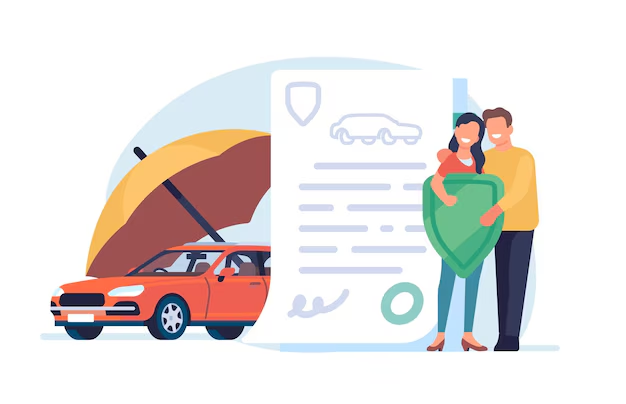
How To Cancel Car Insurance
How To Cancel Car Insurance
Hey, it’s Brini, and I’m here to tell you that plants do remember what you did to them. I actually do too because when I spend a week without watering them, they always give me this angry look. Well, let’s dive into something more serious. Let me tell you more about the canceling process of car insurance.
There are an array of reasons you might cancel your car insurance policy. Maybe you no longer own the car for which you have coverage. Perhaps you are relocating to another state. Or maybe you want to switch to a more affordable car insurance policy. Is there a way to do it? Absolutely. Here’s what you need to know, and look out for.
How To Cancel Your Car Insurance Policy?
The specifics for canceling your policy depend on your insurance company’s policies.
Call your provider. Most of the bigger companies merely require policy holders to talk to an insurance agent to cancel. The phone number should be on your insurance card, and on the company’s website or app. This is usually the fastest route, though you will still likely have to sign a cancellation form or other paperwork to be official.
Send your cancellation by mail or fax. If your insurance company is more traditional, you might need to send a cancellation letter, either to your agent’s office or directly to the company.
Let your new insurer handle it. If you’re canceling your insurance because you’re just switching to a new insurance provider, then have your new provider start the process, and they’ll walk you through it.
What you don’t want to do is just let your policy expire and not tell your insurer you’re canceling. The insurer may also continue to send you bills and report your nonpayment to the credit bureaus, which could harm your credit score.
What Happens When You Cancel Your Policy?
If you cancel an auto insurance policy, your insurer will likely inform your state that you and your car are no longer covered. Since nearly every state requires a minimum level of liability insurance for drivers, the Department of Motor Vehicles in your state may request proof that you sold the vehicle or acquired other insurance.
Failure to provide proof of insurance can land your car registration suspended by the state. In some states — like Nevada — you have to turn in your plates before you can cancel your insurance.
If you had time remaining on the policy, your insurer might send you a prorated refund of the premium you had just paid. Some insurers also impose a cancellation fee if you want out of your policy early.
If you’re changing insurance companies, be sure you have the new policy in place before you cancel the old one — and tell the new insurer precisely when your old policy is scheduled to expire. In most states, it is illegal to drive without car insurance and fine may apply. If you have any outstanding car loan or lease, you also should let your lender know you have switched insurers.
If you’re canceling your policy because you’re moving to a different state, keep in mind that you’ll usually be required to show proof of insurance when you register your vehicle there. Each state has different rules dictating what types and amounts of insurance you’ll need to carry.

What If Your Insurance Company Cancels Your Policy?
You aren’t the only person who can cancel your auto insurance policy. The insurance company can also cancel it.
But that only occurs in certain limited cases. If your policy has been in place for 60 days or longer, the insurer cannot cancel it unless, according to the Insurance Information Institute,
- You didn’t pay the premium.
- You committed fraud or made material misrepresentations in your insurance application.
- Your driver’s license is revoked or suspended.
When You Should Cancel Your Car Insurance?
For drivers wanting a different carrier, purchasing a new policy before your current policy expires is best. And if this is a permanent cancellation, perhaps talk through your situation with an insurance agent to ensure that going without coverage will not place you at legal or financial risk.
When You Move?
If you move, your premium is likely to change, since location plays a part in your rate. If you’re moving within the same state, you may need to use a new local agent but shouldn’t change your policy. But if you’re moving out of state, that might involve transferring your policy or canceling it and buying one that fulfills the new state’s minimum requirements. If your company doesn’t do business in your new home area, you might have to shop for coverage with another company. Be sure to take into account any requirements in each state. As an example, New York. It mandates that drivers turn in their plates before they can cancel their policy. A little crossover in coverage over the next few days might not be a bad thing to safeguard against possible penalties.
When You Do Not Have A Car?
You can also cancel your auto insurance when you sell a vehicle and do not plan to replace it. But typically, it’s best to wait until ownership is transferred and the new owner takes possession before discontinuing coverage. Ask your local DMVs whether you’re supposed to turn in your license plates or if the new owner keeps them. If you intend to buy a new car within the next few months after selling your old one, you’ll want to talk to an agent about converting your policy to a non-owner policy. This can help you avoid a lapse in insurance and keep your policy discounts you accrued with the insurer over time and potentially avoid a rate hike.
When You Want A Better Deal?
For example, you might choose to replace your auto insurance company for a better rate. It is generally wise to get a new policy before you drop your old coverage, again. The best way to ensure there isn’t a lapse in coverage is to have your new policy’s start date align with the old policy’s desired cancellation date. Experts advise shopping for a new insurer at least six to eight weeks before your coverage is scheduled to lapse.
When You Want To Reduce Coverage?
If you’re driving an older car with no lienholder, you might want to eliminate optional collision and comprehensive coverage. Just be mindful of the risks ahead of time. (This means that if you cancel collision and comprehensive, you will probably have to catch the full cost yourself if your car is damaged or stolen, necessitating that you have the financial means.) This would be an amendment to a policy, not a policy cancellation.
When You’re Covered Under Someone Else’s Policy?
You may cancel your insurance if you are a member of a household where another person has coverage and you can be added to their policy. This is most likely the case if you get married, but could also be appropriate for adult children moving back home. Adding a driver to an existing policy might increase your premium, but discounts may also be available to help mitigate the increase.
Again, though, remember insurance follows the car, not the driver, so if you drop coverage on your automobile by canceling your policy, you’d have to add the vehicle to the other driver’s policy to provide financial protection. The good news is that a multi-vehicle policy typically comes with a discount.
When Does Car Insurance Become Cheaper?
What Is The Cheapest Type Of Car Insurance?
In case you have a vehicle, you’ll most likely have car insurance, as all 50 states need it, except for 1, and it’s just everyday wisdom to get. Still, there might be situations where you no longer need your current car insurance, like selling your car, switching to a different policy, or moving to another state. There’s no need to cancel your current policy in such cases as you can just contact your provider.

FAQ
Since lapses in car insurance could negatively affect your future premium, skipping car insurance — even for a long vacation — probably isn’t worth it. If you’re going to be away for a month or more, however, and your vehicle won’t be in use, there could be ways to save on your premiums other than canceling your policy. According to the experts, talk to an agent to find out your options.
When you relocate to your new home, you’ll have to register your vehicle in your state of residence and procure a policy that complies with the state’s auto insurance laws. Many of the big insurers are present in most of the U.S. and Washington, D.C., so you may remain insured through your existing carrier, but your rates will probably change even if you move a short distance. If you do need to search for a new insurance carrier, comparing quotes and getting coverage before you move to another state can smooth the transition.
Other drivers are dropping types of coverage, like optional comprehensive and collision, once they finish paying off their cars. This is likely better for older cars, where the payout for the repairs exceeds the cost in premiums. If you find yourself in situations like this, you might want to drop the nonediction for coverages that you may need and re-evaluate the need for liability-only policies.
Not necessarily. As we discussed above, if you are selling your car and buying a new one right away, you may be able to transfer your policy over to the new car (although you will need to adjust for rates and coverage needs). You could switch to another company then, just ensure there is no interruption in coverage between the sale of the old vehicle and the new purchase. Non-owner policy is the proper choice if you’ll be driving in the future but not in your own car. If, on the other hand, you are no longer going to drive at all, you can cancel your policy altogether, because you won’t need to be covered anymore.

